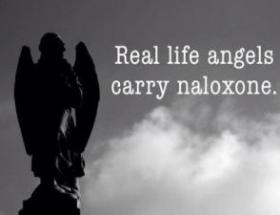Grace Street Services holds community naloxone training in Sanford Maine | Overdose Prevention

Addiction Prevention Articles and News
Harm Reduction
Naloxone
Overdose Prevention
Addiction Multimedia
Harm Reduction Videos
Overview
Originally Published: 02/03/2017
Post Date: 02/03/2017
by WMTW | Morgan Sturdivant
Summary/Abstract
Grace Street Services held its second overdose prevention training featuring a demonstration on administering naloxone and testimonies given by persons in treatment and a YPR recovery speaker/
Content
ScreenCaptureProject6 from Timothy Cheney on Vimeo.
SANFORD, Maine —
According to reports released Thursday, 378 people died from a drug overdose in 2016, a 40 percent increase from 2015.
Directors of Grace Street Services said this alarming number of deaths proves why community education and outreach continues to be an urgent need Maine.
"Almost everybody here has had horrible trauma that got them here," said Merideth Norris, medical director at Grace Street Services. "They didn't wake up one morning and say, 'you know, I think heroin sounds like a whale of a good idea. Given an equally set of options, I'm going to pick this one.' No one does that."
Grace Street Services specializes in treating opiate dependence through medicated-assisted treatment.
Thursday night the group talked to people in Sanford about addiction and hearing from people who have been affected by it.
"Son or daughter or mother or father. This is what we are treating," said Jeremy Hiltz of Grace Street Services. "This is members of our community that we are dealing with right now."
The group showed how to administer the nasal spray version of Narcan, the emergency drug used to save someone's life who is experiencing an overdose.
"Here's what you can do. You can have this in your house or in your purse so that if you see somebody who you love and they're trying to die on the floor in front of you, you can them keep alive long enough that they can maybe change their mind," said Norris.
Sanford Chief of Police Thomas Connolly attended and believes the type of treatment at the program is more effective than sending people away to rehab.
"It is community-based so it's there where you need it, in your community, not 50 miles away and it's usually medication assisted because all the research shows that's the way the way to get people stabilized so that they can do the behavioral thing, they change the things that they do, develop the spirituality that they need to develop to get better," said Connolly.
The chief also believes coming out of the epidemic needs to be a community effort.
"These are not bad people," said Connolly. "They're people that made a bad choice. That doesn't make them a bad person and if you can look past that and then realize the potential of people which is if they stop using they are going to probably be productive citizens."
Along with demonstrating how to use it, Dr. Norris also wrote prescriptions for Narcan for people who were in attendance.





